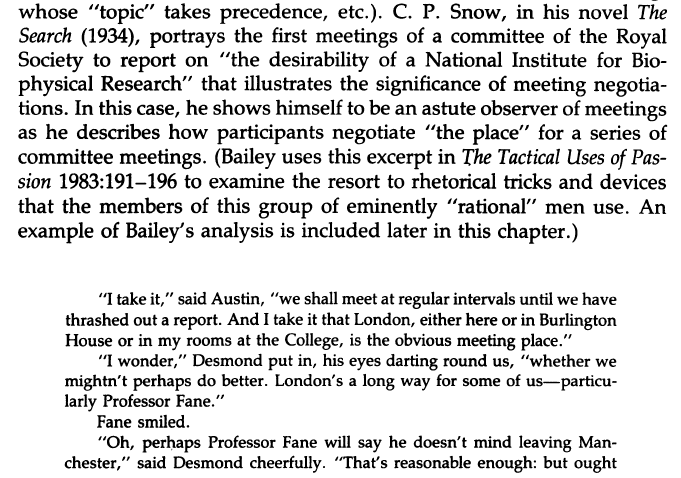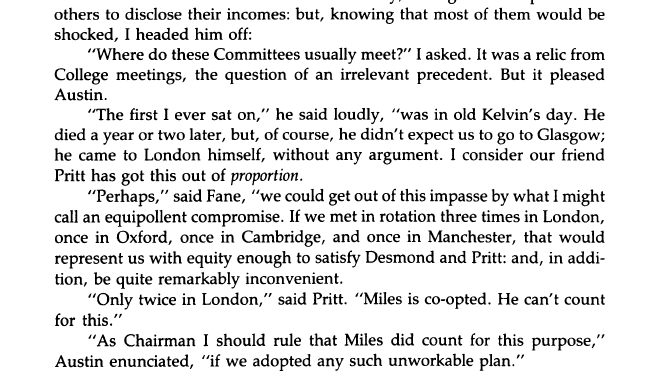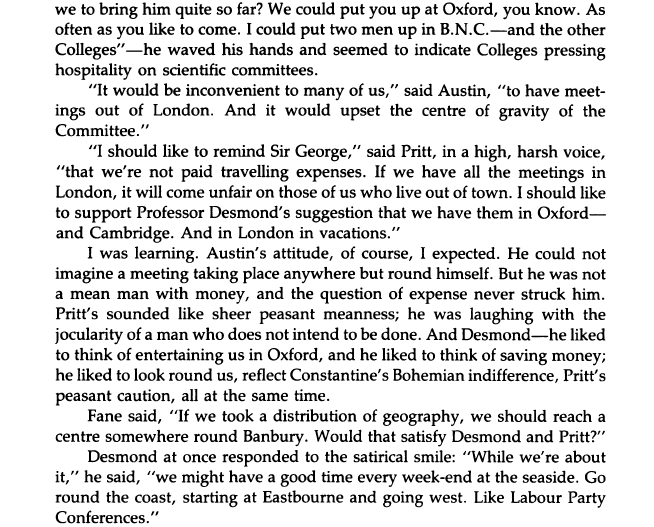I like the way you often manage to put succinct labels on complex phenomena! Fascinating analytic thinking!
@hsjsls’s answer (or one of her answers) to the question seems clear to me: meetings allow participants to do all kinds of things (that may not be able to do otherwise) while officially attending common business. I quote from her book (p. 42, my emphasis):
March and Olsen (1976) … suggest that a choice process provides an occasion for a number of things, including fulfilling role expectations, defining virtue and truth, interpreting what is happening, challenging or reaffirming friendships, power, and status, socialization of members, and having a good time (pp. 11-12). However, in my view, it is the nature of the meeting form, and not the choice, that provides the best structure for this mix. Meetings are able to do this because they are a context where one thing can always be talked about in terms of something else.
That’s why Schwartzman’s definition (p. 61, my emphasis) famously includes “a purpose ostensibly related to the functioning of an organization or group”.
One of these “unofficial” things that people do in meetings is negotiate their relative status.The excerpt below illustrates this well (taken from the same book, pages 70-71:


